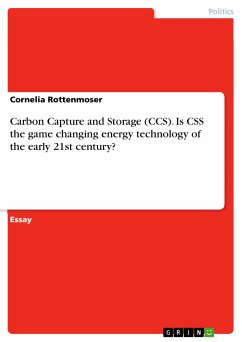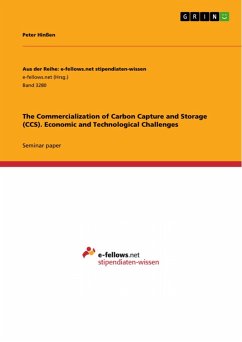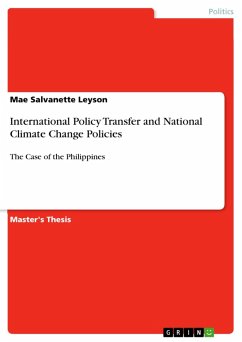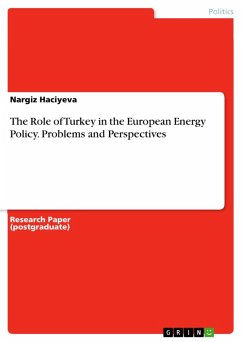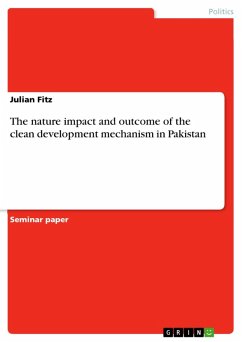Essay from the year 2012 in the subject Politics - Environmental Policy, grade: Merit, School of Oriental and African Studies, University of London (CISD - Centre for International Studies and Diplomacy), course: Global Energy and Climate Policy, language: English, abstract: CCS is a highly praised technology that allegedly allows humankind to go on living life the way they have always done and continue their business as usual. But is it that what we need? CCS might help overcome the short-term problems of society but never can it be a solution for all CO2 related questions. It is a dead end street. Earth as only a certain capacity of letting CO2 sink in through sequestration, i.e. absorption through afforestation, peat production, wetland restoration, ocean related absorption or a change in agricultural methods. Apart from that, then, there is CCS. Unfortunately, CCS is not on scale yet and it implies huge capital costs for installation at a time when no one knows yet whether or not it is a viable option at all. Additionally, the emission of greenhouse gases includes not only the emission of CO2 but also a range of harmful short-term pollutants (e.g. sulphates, methane) that cannot be captured by CCS methods but that still have a massive influence on our climate. What is needed is a consequent and fundamental change of behaviour and not a change of technology that allows us to go on as before. As recent history shows, the implementation of taxes or restrictive regulations or the implementation of ETS have not had a major effect on the behaviour of countries. The money invested in research for CCS is better invested in finding alternatives, in funding the implementation of an integrated grid, to start with in Europe and then gradually expanding it, with the further development of techniques to possibly even span oceans and connect the American or African continent to the European grid to guarantee energy security through renewable energy resources, which are already in the phase of development where they can be produced at scale and are competitive with the implementation of conventional energy sources.
Dieser Download kann aus rechtlichen Gründen nur mit Rechnungsadresse in A, B, BG, CY, CZ, D, DK, EW, E, FIN, F, GR, HR, H, IRL, I, LT, L, LR, M, NL, PL, P, R, S, SLO, SK ausgeliefert werden.

